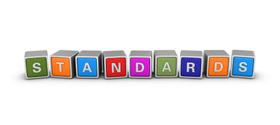Top Rankings
Haywood County Schools School District ranks among the top 20% of public school district in North Carolina for:
Category
Attribute
Math Proficiency
Highest math proficiency (Top 20%)
Science Proficiency
Highest science proficiency (Top 20%)
Community Size
Largest student body (number of students) (Top 1%)
For the 2025 school year, there are 4 public high schools serving 2,054 students in Haywood County Schools School District. This district's average high testing ranking is 9/10, which is in the top 20% of public high schools in North Carolina.
Public High Schools in Haywood County Schools School District have an average math proficiency score of 81% (versus the North Carolina public high school average of 58%), and reading proficiency score of 65% (versus the 58% statewide average).
Public High School in Haywood County School School District have a Graduation Rate of 86%, which is equal to the North Carolina average of 86%.
The school with highest graduation rate is Pisgah High School, with 92% graduation rate. Read more about public school graduation rate statistics in North Carolina or national school graduation rate statistics.
Minority enrollment is 17% of the student body (majority Hispanic), which is less than the North Carolina public high school average of 55% (majority Black and Hispanic).
Overview
This School District
This State (NC)
# Schools
15 Schools
761 Schools
# Students
6,550 Students
565,764 Students
# Teachers
435 Teachers
33,453 Teachers
Student : Teacher Ratio
15:1
15:1
Student By Grade
District Rank
Haywood County Schools School District, which is ranked within the top 30% of all 320 school districts in North Carolina (based off of combined math and reading proficiency testing data) for the 2021-2022 school year.
The school district's graduation rate of 86% has increased from 85% over five school years.
Overall District Rank
#72 out of 325 school districts
(Top 30%)
(Top 30%)
Math Test Scores (% Proficient)
(21-22)65%
51%
Reading/Language Arts Test Scores (% Proficient)
58%
50%
Science Test Scores (% Proficient)
78%
63%
Graduation Rate
(21-22)89%
86%
Students by Ethnicity:
Diversity Score
0.28
0.70
% American Indian
n/a
1%
% Asian
n/a
4%
% Hispanic
10%
20%
% Black
1%
24%
% White
85%
45%
% Hawaiian
n/a
n/a
% Two or more races
4%
6%
All Ethnic Groups
District Revenue and Spending
The revenue/student of $12,495 is higher than the state median of $11,187. The school district revenue/student has stayed relatively flat over four school years.
The school district's spending/student of $12,356 is higher than the state median of $11,612. The school district spending/student has stayed relatively flat over four school years.
Total Revenue
$82 MM
$17,307 MM
Spending
$81 MM
$17,964 MM
Revenue / Student
$12,495
$11,187
Spending / Student
$12,356
$11,612
Best Haywood County Schools School District Public High Schools (2025)
School
(Math and Reading Proficiency)
(Math and Reading Proficiency)
Location
Grades
Students
Rank: #11.
Haywood Early College
(Math: ≥90% | Reading: ≥90%)
Rank:
Rank:
10/
Top 1%10
185 Freedlander Drive
Clyde, NC 28721
(828) 565-4000
Clyde, NC 28721
(828) 565-4000
Grades: 9-13
| 170 students
Rank: #22.
Pisgah High School
(Math: 80-84% | Reading: 68%)
Rank:
Rank:
10/
Top 10%10
1 Black Bear Drive
Canton, NC 28716
(828) 646-3440
Canton, NC 28716
(828) 646-3440
Grades: 9-12
| 908 students
Rank: #33.
Tuscola High School
(Math: 75-79% | Reading: 62%)
Rank:
Rank:
9/
Top 20%10
564 Tuscola School Rd
Waynesville, NC 28786
(828) 456-2408
Waynesville, NC 28786
(828) 456-2408
Grades: 9-12
| 908 students
Rank: #44.
Central Haywood High School
Alternative School
(Math: ≤20% | Reading: <50% )
Rank:
Rank:
4/
Bottom 50%10
62 Joy Lane
Waynesville, NC 28786
(828) 627-9944
Waynesville, NC 28786
(828) 627-9944
Grades: 9-12
| 68 students
Recent Articles

The 15 Biggest Failures of the American Public Education System
The world is in a constant state of change and those who fail to adjust fall behind. Unfortunately, the American public education system has not kept up with the times and is currently facing a number of serious problems. Keep reading to learn about the biggest failures affecting the modern U.S. public education system as well as some of the trends that could spark change.

Florida Governor Calls for More Funding for State鈥檚 Public School System
Florida Governor Rick Scott has introduced a state budget for next year that pumps one billion more dollars into the public school system. We鈥檒l look at his reasons for the increase and the responses to the proposal.

Can Your Child鈥檚 School Meet the National Standards?
The article discusses the challenges public schools face in meeting national educational standards. It examines current performance trends, identifies key issues affecting student achievement, and explores potential solutions for improving academic outcomes across U.S. public schools.




